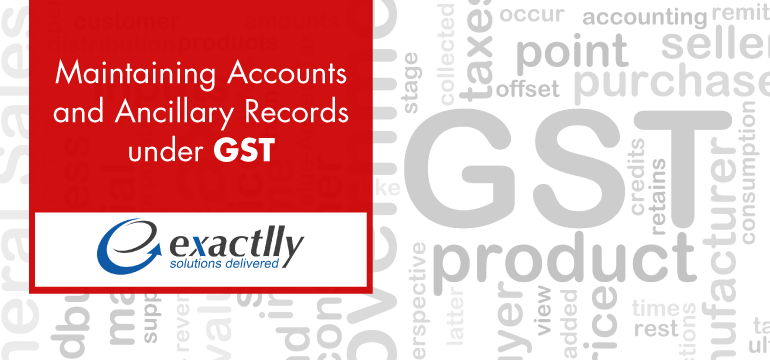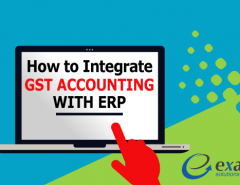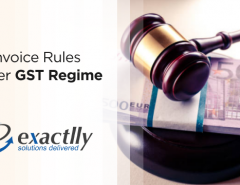Accounting and reporting form the backbone of compliance of any company. The indirect tax GST regime in India prescribes the standards that need to be maintained for accounting pertaining to tax and other ancillary information. Records need to be maintained for the financial year starting in April and ending in March of the subsequent year. Records and accounts so maintained form the basis of the returns that taxpayers ultimately file in each financial year.
We have provided a brief of the maintenance of these records and accounts under the current or erstwhile indirect tax regime as well as the oncoming GST regime as follows:
-
Erstwhile Regime:
The laws under the current or erstwhile indirect tax regime state that books of accounts and records are required to be maintained with respect to the transactions entered into, over a specific period of time. The various laws under which records are to be maintained are laws pertaining to Excise duties, Service Tax and VAT. These records are required to be maintained for at least a 5 year period from the end of the financial year in which they were affected.
|
Prescribed Law |
Maintenance of |
| Excise | General records to be maintained by way of RG-1 register containing details of a daily stock account of excisable goods; Form IV register containing details of receipt or issue of raw material; invoice book and job work register |
| Service Tax | Bill register, receipt register, debit and credit notes register, CENVAT credit register, among others |
| VAT | Records of purchase, sales, stock, VAT account with details of input and output taxes, work contracts, etc. |
-
GST Regime:
Owing to the consolidation of taw laws under the GST regime, businesses can maintain information in a consolidated manner as opposed to maintaining it separately. This includes information pertaining to manufacturing activities, the provision of taxable services, and the sale of goods. Every registered taxpayer is required to maintain accurate accounts of details such as the manufacture of goods, the inward and outward supply of goods and services, stock of goods, the input tax credit availed, output tax payable or paid. All these details are to be recorded as per the principal place of business of the taxpayer. In case more than one place of business has been specified in the registration certificate of the business, then accounts pertaining to each of the places of business must be maintained.
Under the GST, records and accounts are to be maintained electronically – this not only makes the compliance process smoother but more convenient and less prone to errors.
Other Compliances –
|
Category of Persons |
Form |
Description |
| Turnover in one financial year exceeds INR 1 bcrore | GSTR-9 / GSTR-9B |
Accounts must be audited by a chartered accountant or cost accountant and a copy of the same to be submitted along with a reconciliation statement.
The reconciliation statement must be certified by a chartered accountant or cost accountant stating that the value of supplies declared reconciles with the annual financial statement. |
| Persons operating/owning a warehouse or godown | Maintenance of records of the consignor, consignee, and other such details | Records must be maintained irrespective of registration – pertaining to warehouses, godowns, or any other place used for storing goods. |
As a recap, accounts are required to be maintained and stored for a period of 5 years. In the event of accounts for the financial year 2017-2018, annual returns are required to be file by December 31, 2018, and maintained until December 31, 2023. Feel free to Contact Us and get a Free Demo.





Leave a Reply